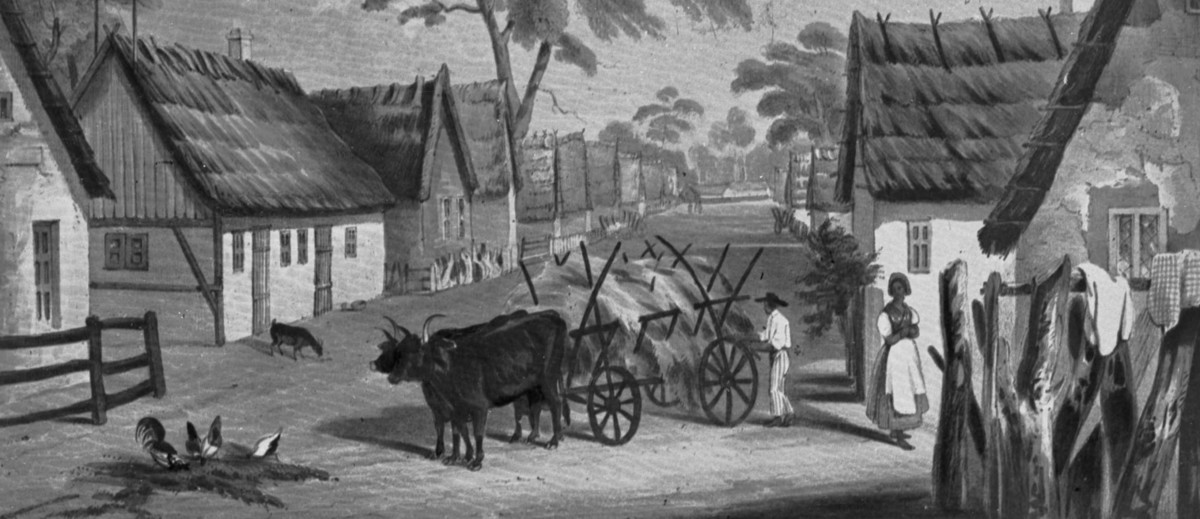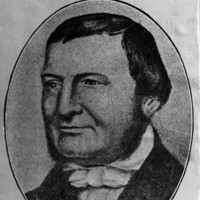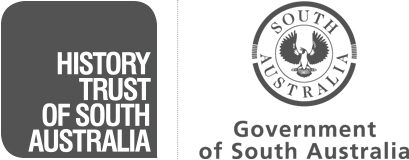August Ludwig Christian Kavel was born in Berlin, Prussia, on 3rd September 1798. After training at Berlin University, where he rejected the prevalent Enlightenment teaching, he was appointed in 1826 as pastor to the Lutheran church at Klemzig, a village in Brandenburg province. Here his powerful preaching led to a religious revival in the area. At first Kavel accepted the king’s moves to unite the Lutheran and Reformed churches but gradually became convinced by the growing Lutheran opposition that the union was incompatible with their teaching. As a result he resigned in 1835 and joined the breakaway Old Lutherans.
Kavel and his followers decided to emigrate so that they could worship in freedom. Failing to find sponsorship to America, he was directed from Hamburg to England, where in 1836 he met the Baptist businessman and philanthropist George Fife Angas, Chairman of the South Australian Company, who showed an interest in settling German agricultural workers in the new colony.
The Prussian government at first refused to allow them to leave but eventually about 200 peasants and artisans, including Kavel, his parents and siblings, emigrated to South Australia, with Angas advancing the money for their fares (to be repaid later with interest). They arrived on the Prince George in November 1838 and over the next few years several hundred more German colonists joined them. Under Kavel’s leadership, they established villages at Klemzig near Adelaide, at Hahndorf in the Adelaide hills, and at Glen Osmond in the foothills. They also founded the Lutheran Church in Australia and swore allegiance to the British crown. Kavel negotiated with Angas’ agent, Charles Flaxman, to take up large tracts of land in the Barossa Valley, where they founded the townships of Bethany and Langmeil (Tanunda).
On 28th March 1840 Kavel married an Englishwoman Anne Catherine Pennyfeather, despite initial qualms of conscience because of her different religious background. However, their happy marriage was cut short when she died on Christmas Day 1841, after giving birth to a stillborn son. In 1851 Kavel married Johanne Beate Irrgang, but they remained childless.
Kavel’s disagreements with the second pastor to arrive, Gotthard Fritzsche, as well as with some German missionaries sent to work among Aborigines, led to a split among the Lutherans in 1846 that was to last for 120 years. Nevertheless, their success in South Australia, described in letters home, encouraged many more to emigrate and by 1855 Germans and their children constituted over 8% of the province’s population. They were industrious workers, concentrating on agriculture and the grazing of sheep and cattle. The rich legacy of German culture in South Australia, especially in the Adelaide hills and the Barossa Valley, was born of their efforts.
Kavel favoured a strict pietistic exclusivity in religious life, with a leaning towards millennialism, i.e. the literal interpretation of the thousand years mentioned in the Book of Revelation. Yet he took an active part in public life, wrote letters to the newspapers, gave a public talk on comets, was a Trustee of the Savings Bank, wrote a pamphlet promoting the colony and co-operated with the ministers of other churches. While very strict with himself and his own people, he was liberal and tolerant towards others, and was generous and self-denying, although somewhat austere. His sincerity, integrity and single-minded pursuit of what he believed was right attracted dedicated followers, though what they admired as uncompromising determination was seen by his opponents as arrogance and pigheadedness.
August Kavel died at Bethany on 12th February 1860 and was given a large funeral at nearby Langmeil. His grave there is now marked by an imposing granite monument, erected in 1938.
Brauer, A., Under the Southern Cross: History of Evangelical Lutheran Church of Australia (Adelaide: Lutheran Publishing House, 1956).
Price, A.G., Founders & pioneers of South Australia (Adelaide: Preece & Sons, 1929).
Schubert, D.A., Kavel’s people (Adelaide: Lutheran Publishing House, 1985).




Add your comment